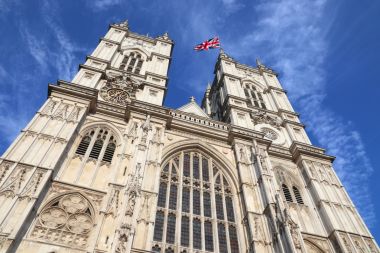British public don't want a secular coronation, poll finds

A new poll commissioned by Bible Society has found little appetite for a secular or multi-faith coronation among members of the British public.
In the poll of 3,000 people across England and Wales, just 15% agreed that state royal events should be wholly secular.
Support for a multi-faith state royal event was similarly low at 16%.
Asked whether it should be wholly Christian, nearly a third agreed (31%). Only a fifth (21%) disagreed and nearly half (48%) said they didn't know.
Support for the presence of Christianity at the late Queen's funeral was even higher, with over three quarters of respondents (79%) saying it was appropriate because of her personal Christian faith, while a majority (72%) agreed that it was appropriate for a British royal event.
Over half (55%) were happy that the funeral events were wholly Christian. Only 12% found it alienating.
Over a third (37%) were supportive of the Bible being part of a state royal event, compared to just 14% who disagreed.
The poll was carried out by YouGov on behalf of Bible Society and the findings are published in the charity's new report, Mourning Elizabeth: Christianity and the Bible in the funeral of the Queen.
Commenting on the findings, the report's co-author, Dr Rhiannon McAleer said: "The latest census revealed that less than half the population of England and Wales now identify as Christian, but this doesn't translate to a desire to see Christianity banished from the public sphere."
The results have been published just weeks before the coronation of King Charles III where he will take his oath using a special edition of the King James Bible in Westminster Abbey.
Other findings in the survey revealed strong support for the Queen (68%) and Britain remaining a monarchy (62%), compared to only 27% who want a republic - although support for the monarchy falls considerably among 18 to 24 year olds at 43%.
Over a quarter of those surveyed (29%) said they heard parts of the Bible they had never heard before during the Queen's funeral, rising to 40% among 18 to 24 year olds.
A third said they had found the passages moving, although a quarter said they were boring and the same proportion of young people and people of other faiths said the Bible was hard to understand.
Dr McAleer said, "Even many people who might not practise Christian faith themselves appear to recognise it as part of the social fabric expressed by the institution of monarchy. Many are also receptive to the Bible, which was quoted extensively during the funeral events.
"Far from people finding the presence of Christianity alienating at royal events, it is widely regarded as appropriate."
She added: "These are indications that Christianity is still regarded as a significant factor in public life, and isn't to be dismissed as irrelevant or outdated. There are also challenges for the Church, though, in engaging those who did feel that the Bible readings and rituals didn't speak to them."











